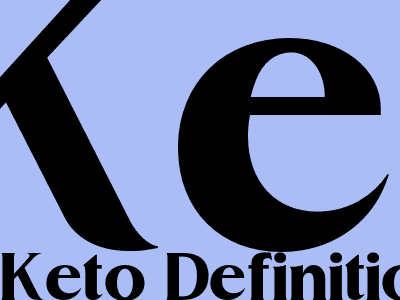Ketogenic Diet: A Comprehensive Guide
What is the Ketogenic Diet?
We all want quick results for our health and body. However, not all effective diets are the same for everyone. Some work for some and have negative effects on others. It is also important to note that every person has different body structures and nutritional needs.
The ketogenic diet (keto) is a very low-carb, high-fat diet that shares similarities with the Atkins diet and other low-carb diets. It involves drastically reducing carbohydrate intake and replacing it with fat. This reduction in carbs puts your body into a metabolic state called ketosis.
How Does the Ketogenic Diet Work?
When you eat a lot of carbohydrates, your body converts them into glucose, which is then used for energy. However, when you drastically reduce your carb intake, your body is forced to find an alternative source of energy. This is where fat comes in.
When your body breaks down fat, it produces ketones, which can be used for energy by your brain, heart, and muscles. Ketones are also believed to have several other health benefits, including reducing inflammation and improving blood sugar control.
Benefits of the Ketogenic Diet
- Weight loss
- Improved blood sugar control
- Reduced inflammation
- Increased energy levels
- Improved mental clarity
- Reduced risk of certain chronic diseases, such as heart disease and cancer
Risks of the Ketogenic Diet
- Nausea
- Vomiting
- Headaches
- Fatigue
- Constipation
- Kidney stones
- Electrolyte imbalances
- Increased risk of heart disease and cancer (if followed for a long period of time)
Is the Ketogenic Diet Right for You?
The ketogenic diet can be an effective way to lose weight and improve your health. However, it is important to talk to your doctor before starting this diet, especially if you have any underlying health conditions.
The ketogenic diet is not for everyone. It is important to talk to your doctor if you are considering starting this diet.

Comments